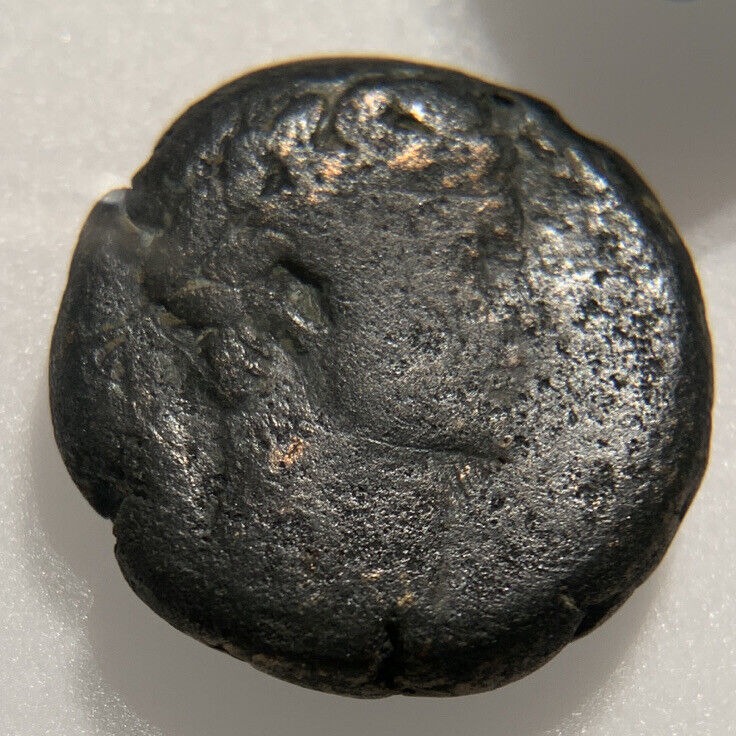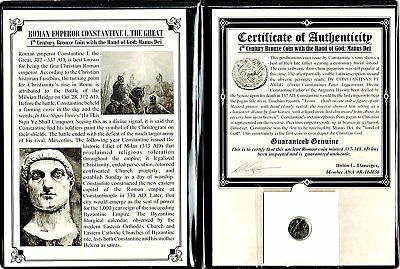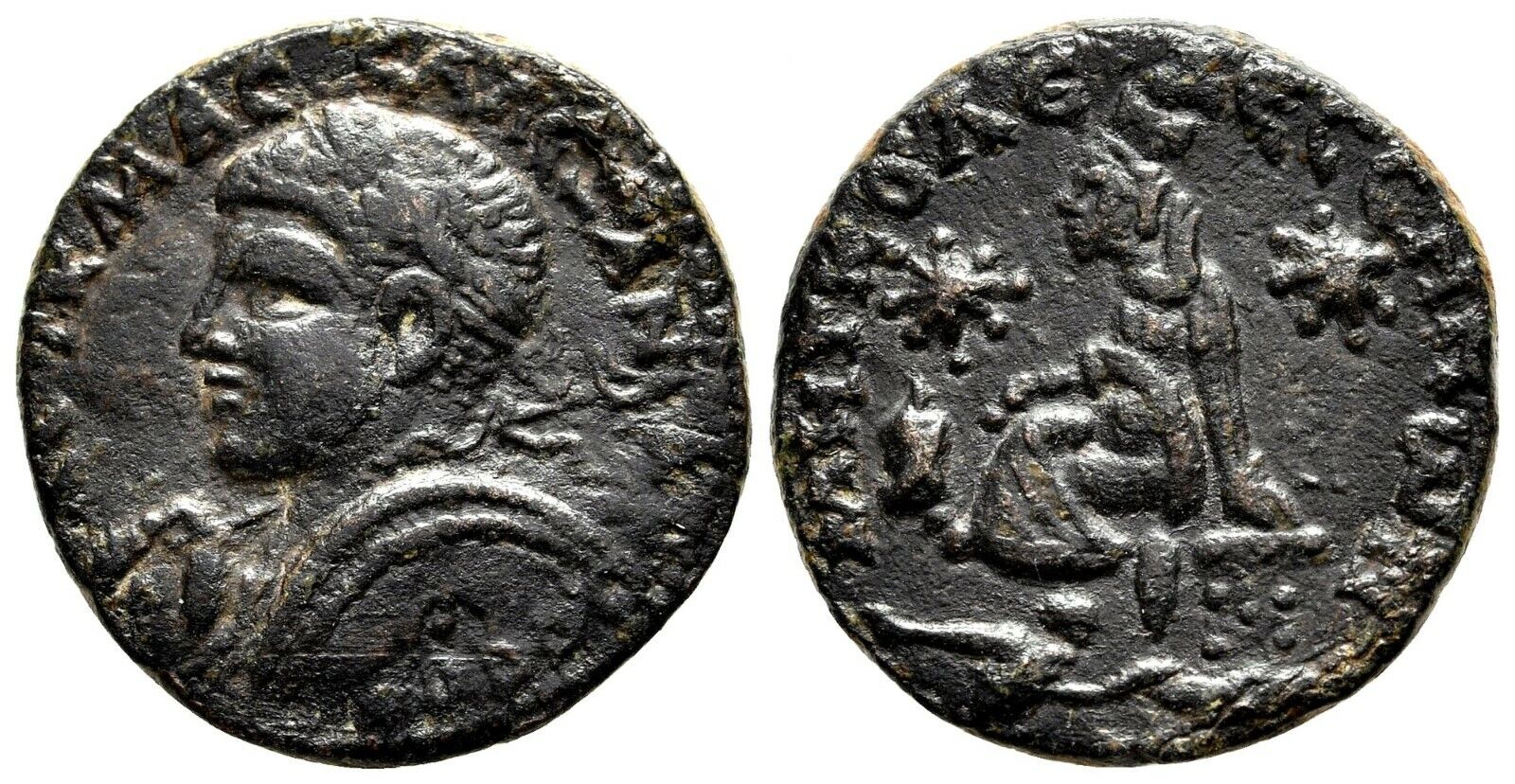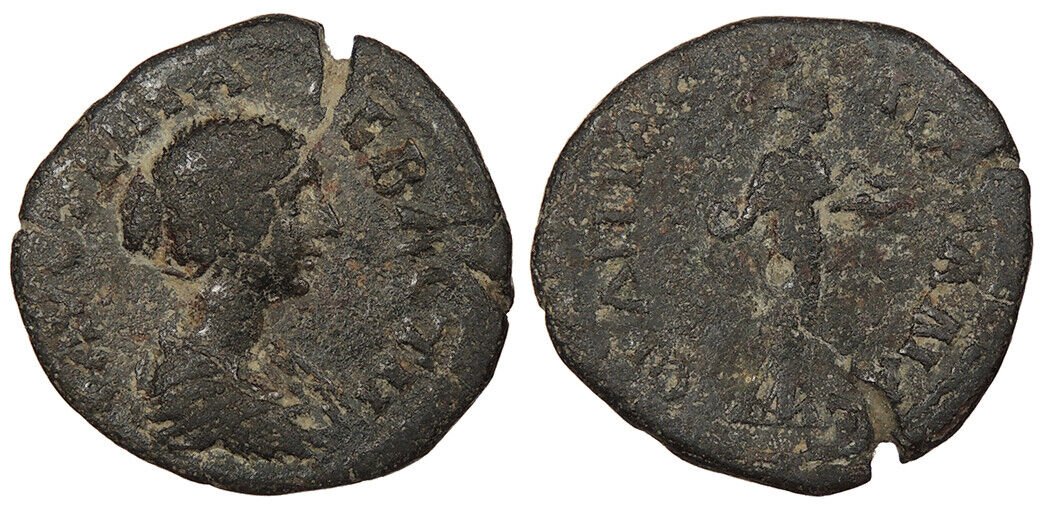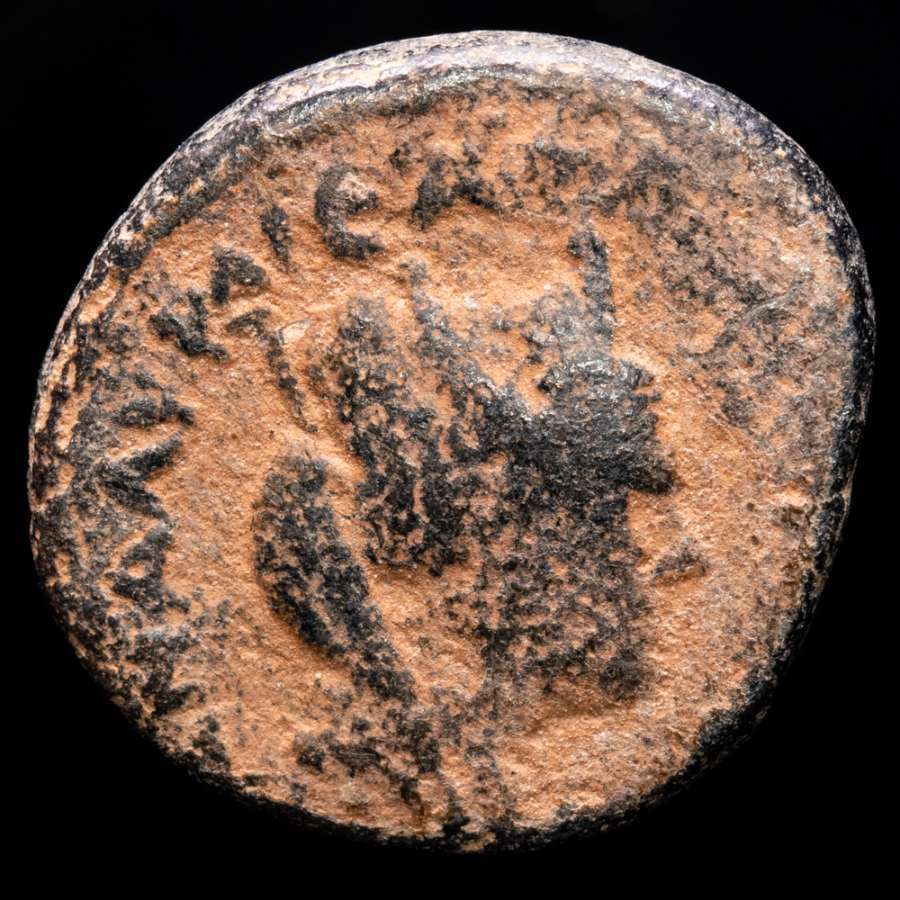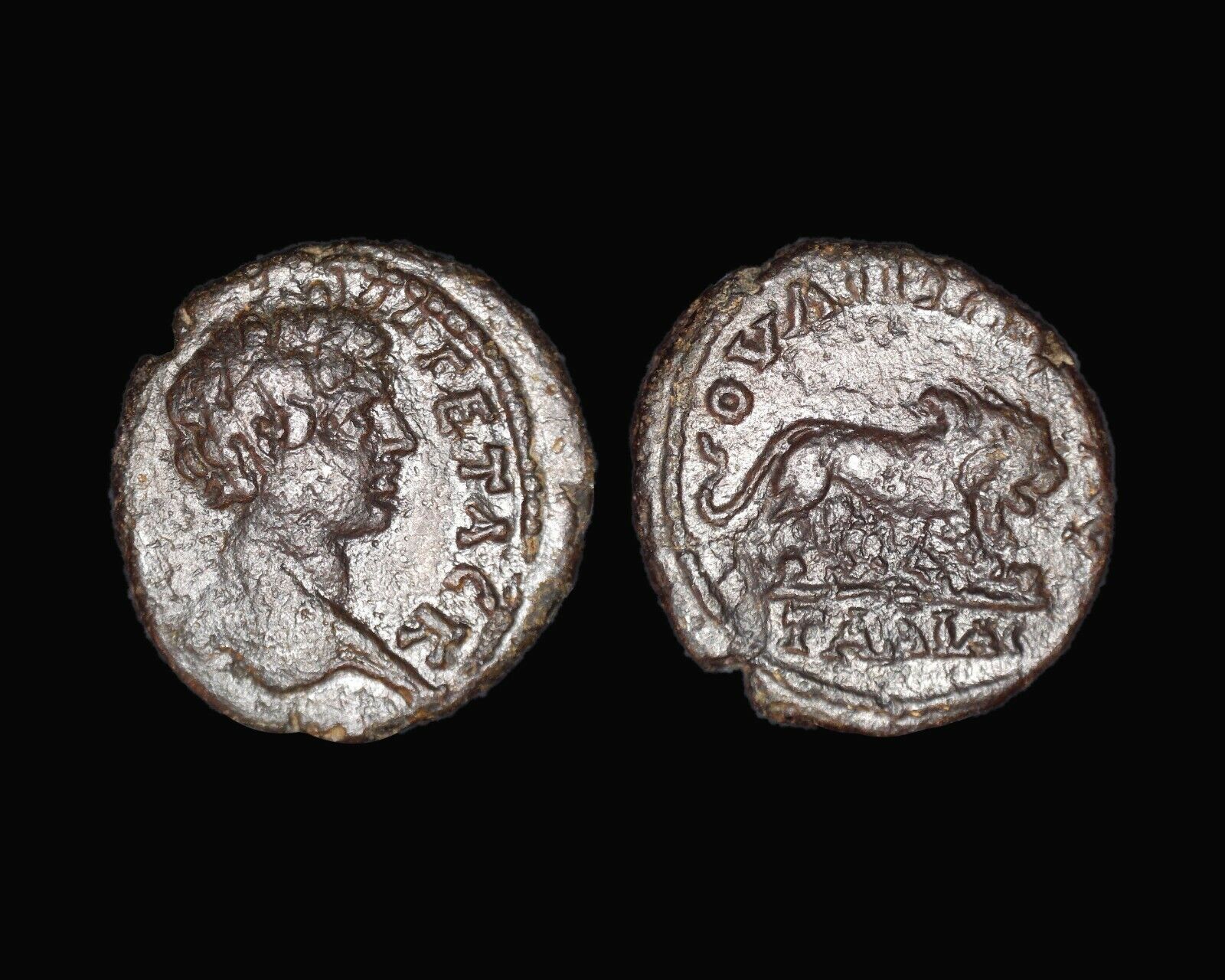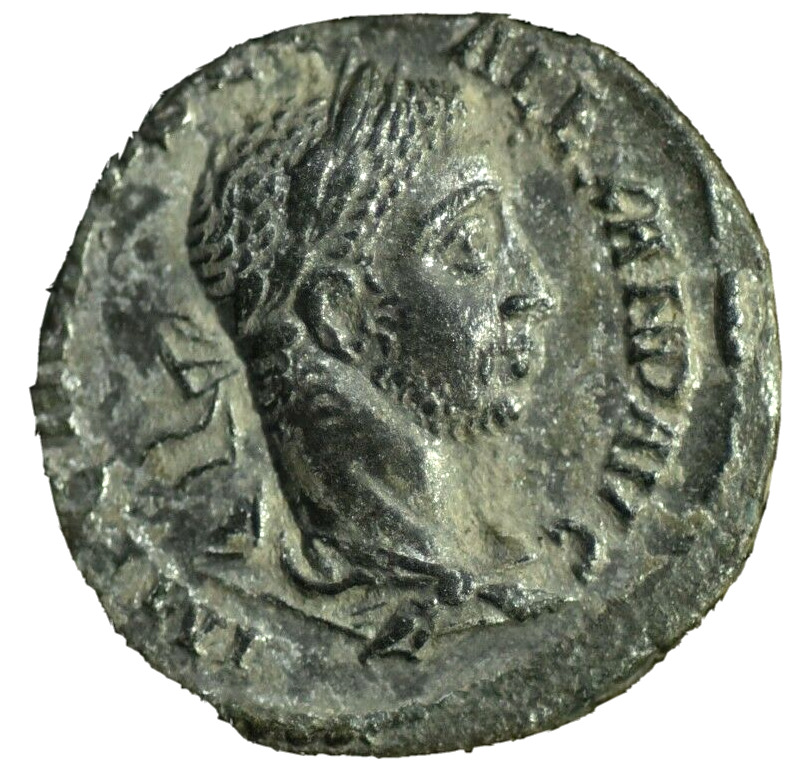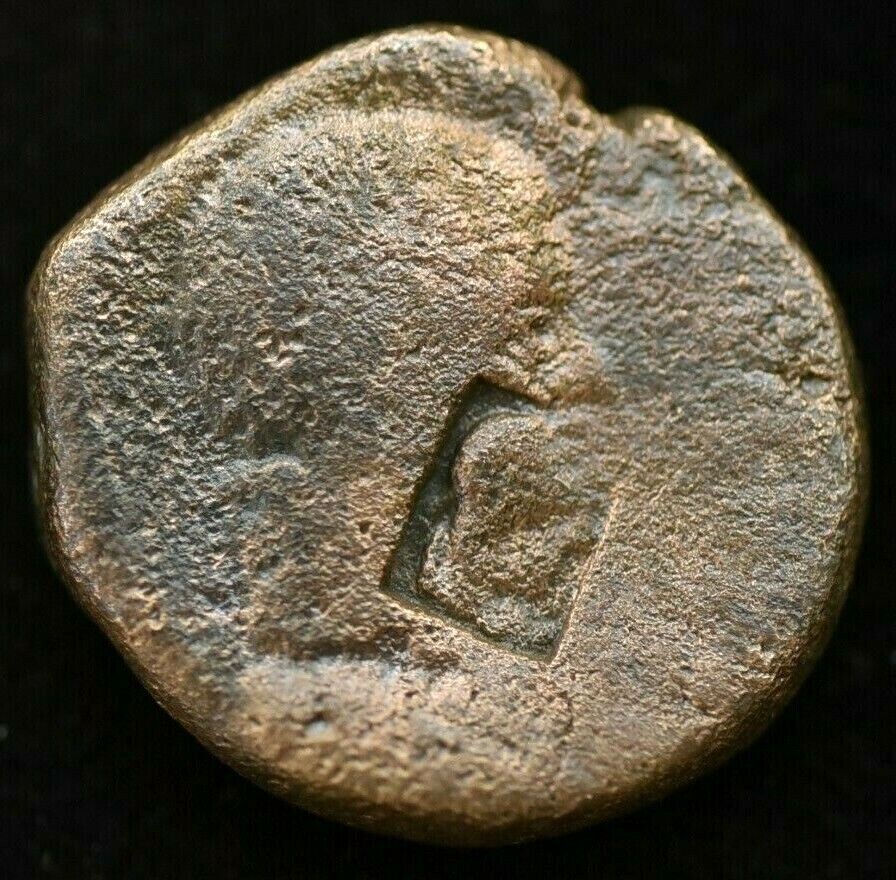-40%
Claudius of Gadara AD 41-54 - turreted head of Tyche right - Thick 10.5 gm AE 20
$ 13.17
- Description
- Size Guide
Description
Roman ProvincialGadara, Syria, modern day Umm Qais, 110 km north of Amman
CLAUDIUS AD48 Sepphoris BIBLICAL Gadara Authentic Ancient Roman Coin DECAPOLIS
Æ20. Dated CY 108 (AD 44/5). Laureate head of Claudius right / Turreted and veiled head of Tyche right; L HP (date) before.RPC I 4816; Rosenberger 21; Spijkerman 16; SNG ANS 1294. 5.45g, 17mm, 12h. Good. Attractive desert patina. Rare.
Weight: 10,5g
Diameter: 17mm
Gadara, modern Umm Qays, ancient city of Palestine, a member of the Decapolis, located just southeast of the Sea of Galilee in Jordan. Gadara first appeared in history when it fell to the Seleucid Antiochus the Great (218 BC); the Jewish king Alexander Jannaeus took it after 10 months’ siege (c. 100 BC). It was restored by the Roman general Pompey, and Augustus gave it to Herod the Great (30 BC). Archaeological remains include three large theatres, a basilica, a temple, and a colonnaded street.
Decapolis, league of 10 ancient Greek cities in eastern Palestine that was formed after the Roman conquest of Palestine in 63 BC, when Pompey the Great reorganized the Middle East to Rome’s advantage and to his own. The name Decapolis also denotes the roughly contiguous territory formed by these cities, all but one of which lay east of the Jordan River. According to Pliny the Elder (Natural History 5.74), in the mid 1st century AD the 10 cities of the league were Scythopolis (modern Bet Sheʾan, Israel), Hippos, Gadara, Raphana, Dion (or Dium), Pella, Gerasa, Philadelphia (modern Amman, Jordan), Canatha, and Damascus (capital of modern Syria). The exact number varied over time, and at one stage 14 cities are reported to have been members. Damascus lay the farthest north, while Philadelphia lay the farthest south. Gadara was the original capital of the league, but it was replaced by Damascus. The cities participated in the Decapolis as a means of mutual protection and security against their Semitic neighbours. The league was subject to the Roman governor of Syria, though his authority was somewhat tenuous in eastern Palestine. The cities of the Decapolis created a rich Hellenistic culture that produced the philosopher-satirist Menippus, among other figures. The league survived until the 2nd century AD.
